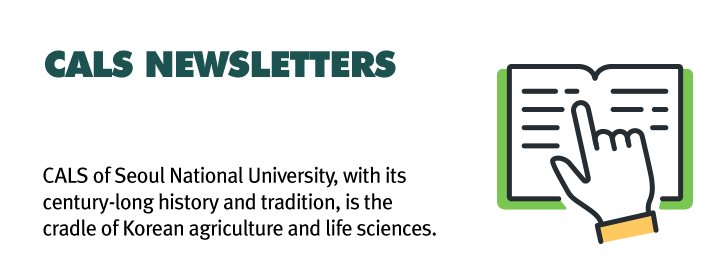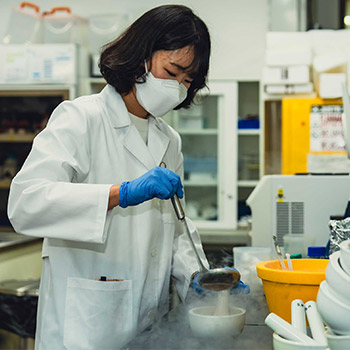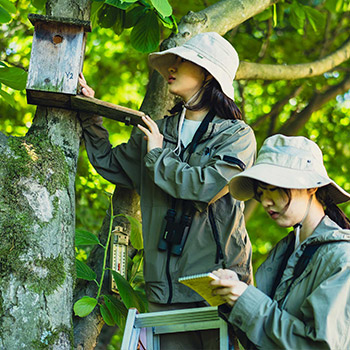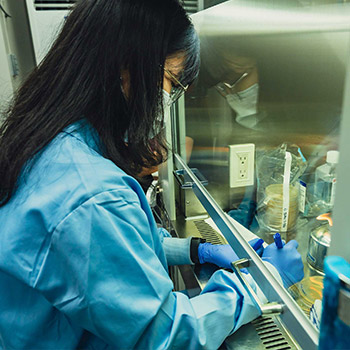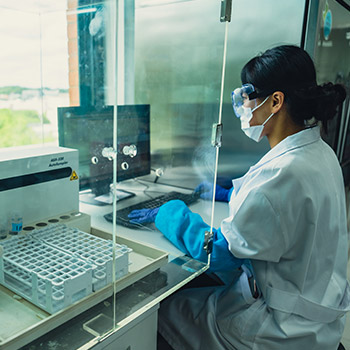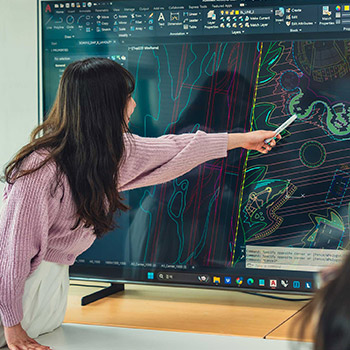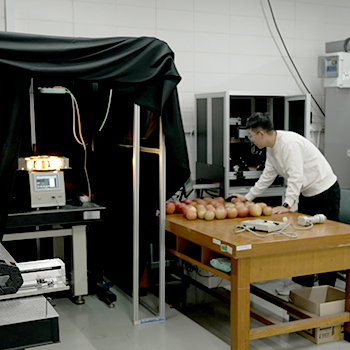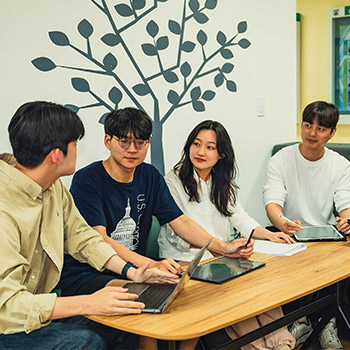Interview with 2022 CALS Freshman Major Exploration Participant Chun Ah-hyun
The College of Agricultural and Life Sciences in SNU conducts "CALS Freshman Major Exploration Activity" every year in each department. We met Chun Ah-hyun, who is majoring in crop life science at the Department of Plant Production Science, as a participant in the 2022 freshman major exploration activity. With an interview, we found out what "CALS freshman major exploration activity" is, and achievements during this activity. Is there any CALS Freshman who are interested in exploring your major, please refer to it!
1. Please introduce yourself briefly and explain ‘CALS freshman major exploration activity’.
: Hello, I'm Chun Ah-hyun, majoring in crop life science at the Department of Plant Production Science. Last year, I participated in a freshman major exploration at the College of Agricultural and Life Sciences. Freshman Major Exploration is a program that supports freshmen at the College of Agricultural and Life Sciences so that they can meet, interview, and tour with institutions or experts in their majors and career fields. About 4 freshmen with the advisor professor form a team, and they decide the detailed exploration plan.
2. What made you participate in the freshman major exploration?
: I first learned about the activity in the student competency development section on the CALS website. At that time, I had colleagues in the departmant I hoped to do this program together so I decided to participate in the activity. I wanted to clearly understand the major of the Department of Plant Production Science. In addition, I am interested in the undergraduate research program, and it was advantageous to apply other activities in the agricultural college when I completed the activity.
3. How did you set the direction of your freshman major exploration?
: All three members in our team were from the same plant production science department, and the first meeting led to a common point that we were interested in crop research. Therefore, we emailed on-campus professors and research institutes (National Institute of Agricultural Sciences, National Institute of Food Science) who conduct related research by setting the keyword of the study as "future agriculture and crops" to conduct face-to-face & face interviews.
4. What was the most memorable advice from the interview with the professors in the school?
Our program guidance professor was Professor Yang Tae-jin, and we set the direction of the inquiry through an meeting with him. Professor Kim Kwang-soo and Professor Lee Seok-ha, who conducted the interview, gave advice on the topics and contents of the research field in charge and told me how they came to the present position. In addition, as the saying goes, "If you learn one thing, you will have an eye for other things, so try a lot," he gave us detailed advice on activities and competencies that would be good for college students to do now. Above all, rather than a too difficult goal, I remember professors advising me to do a lot of things that I can do from the perspective of an undergraduate.
5. What institutions have you explored, and what areas of research have been central to your quest?
: We have three areas under one big theme, "Future Agriculture and Crop Research in Korea," that each member is interested in and the overall aspects of crop research. to be specifically
① Breeding of functional crops and improving crop nutrients
② Study on Pest Resistance and Crop Genome
③ A Study on the Crops according to the Farming Environment in Korea
In addition, we decided to explore these topics sequentially and specialize in conducting domestic agricultural research.
6. Please give us a brief description of the agency you explored.
First of all, both the National Institute of Agricultural Science and the National Institute of Food Science have something in common in that they are affiliated with the Rural Development Administration. The National Institute of Agricultural Sciences is an institution that conducts research on the distribution or production of things commonly recognized as crops such as rice and barley, and even educates farmers. Next, the National Institute of Food Science is an organization that conducts research on food and research on tasks assigned by the state. It is characterized by the aim of promoting the agricultural industry itself a little more than the National Institute of Agricultural Sciences.
7. How did your understanding of your major change before and after participating in the activity?
: Immediately after entering college, I recognized the Department of Plant Production Science as simply a department of plant research. So, at first, I thought only of internal researchers at Seoul National University as a career of researcher. But after performing the activity, I learned that national government agencies (the Rural Development Administration, state-affiliated organizations in each region) conduct professional research as much as graduate schools. Furthermore, I have a wider range of career paths, thinking that these institutions tend to conduct research more freely than graduate schools.
8. What is the desired career path of the team members who participated in the activity together?
: All three members of the team hope to go to graduate school because they want to study in the field of study.
9. What was the most difficult part of the freshman major exploration activity?
: Scheduling with interviewees was the most complicated. It was difficult for three team members to meet the schedule, and there were many things to consider, such as avoiding the internal audit schedule of the institution when interviewing or touring with researchers. We even went down to Wanju for an interview, but an expert became positive in COVID-19, we must inevitably proceed non-face-to-face interview. I think lost of variables about the plan was the most difficult thing.
10. What kind of students do you recommend for freshman major exploration activities?
: I recommend it to students who want to develop their careers into agriculture with an active mind. Also, I think it's a good enough activity for students who don't know what to do yet and whose future career is ambiguous to participate. The activity was an opportunity to listen passionately when taking school classes, and it was fun to visit and explore actual institutions.

